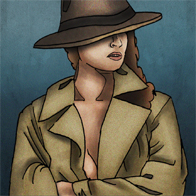Fifty-Six Of The Best (Or Worst) Similies Ever Written
December 30th, 2011 | Metaphor and Simile | journalpulp | 4 CommentsThe following list, which comes from two contests held by the Washington Post, is not new — in fact, it’s been making the internet rounds for a while now — but you’ll never get tired of reading it: 1. Her eyes were like two brown circles with big black dots in the center. 2. He […]
Read More


